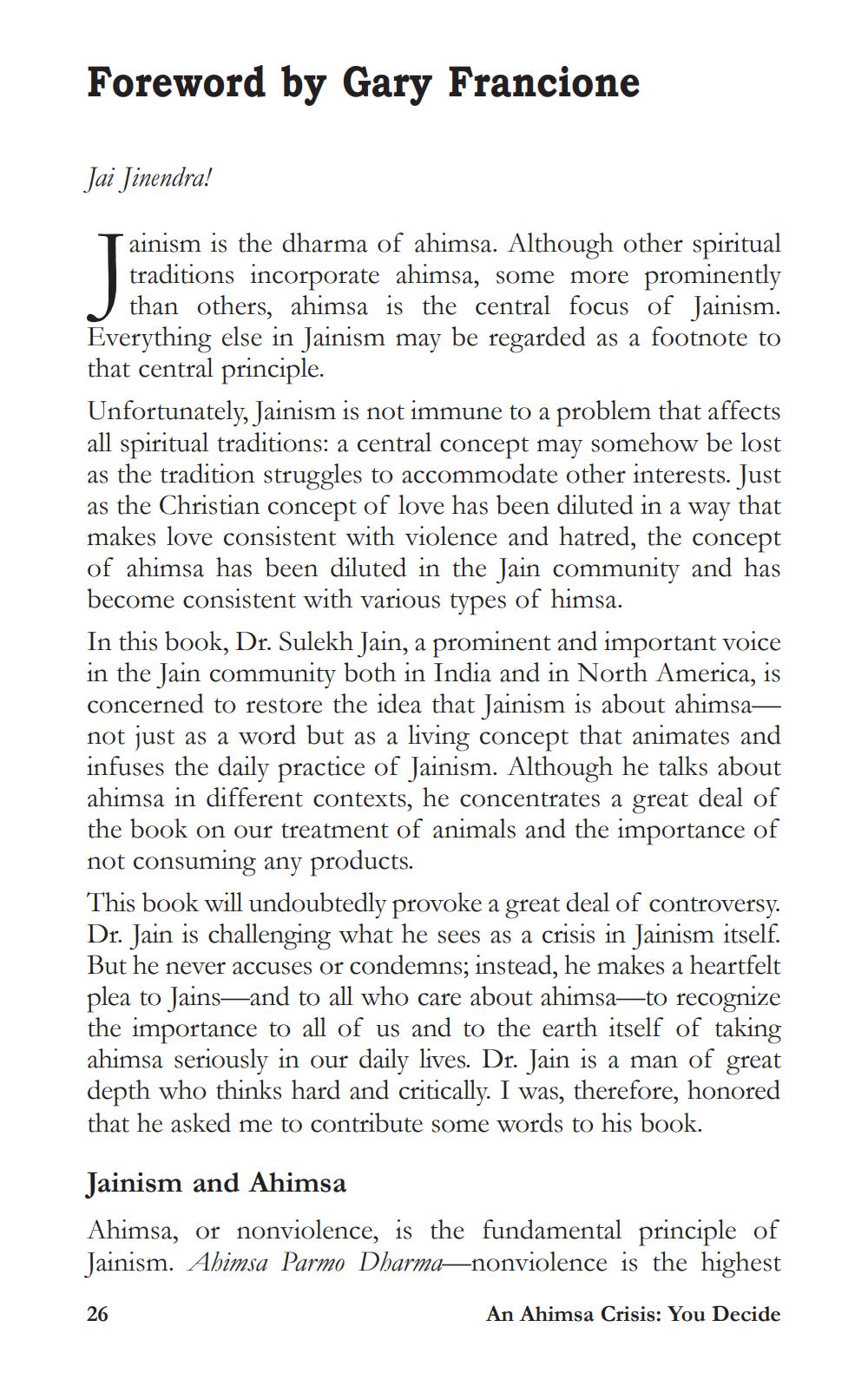________________
Foreword by Gary Francione
Jai Jinendra!
Tainism is the dharma of ahimsa. Although other spiritual
traditions incorporate ahimsa, some more prominently
than others, ahimsa is the central focus of Jainism. Everything else in Jainism may be regarded as a footnote to that central principle. Unfortunately, Jainism is not immune to a problem that affects all spiritual traditions: a central concept may somehow be lost as the tradition struggles to accommodate other interests. Just as the Christian concept of love has been diluted in a way that makes love consistent with violence and hatred, the concept of ahimsa has been diluted in the Jain community and has become consistent with various types of himsa. In this book, Dr. Sulekh Jain, a prominent and important voice in the Jain community both in India and in North America, is concerned to restore the idea that Jainism is about ahimsa— not just as a word but as a living concept that animates and infuses the daily practice of Jainism. Although he talks about ahimsa in different contexts, he concentrates a great deal of the book on our treatment of animals and the importance of not consuming any products. This book will undoubtedly provoke a great deal of controversy. Dr. Jain is challenging what he sees as a crisis in Jainism itself. But he never accuses or condemns; instead, he makes a heartfelt plea to Jains—and to all who care about ahimsa—to recognize the importance to all of us and to the earth itself of taking ahimsa seriously in our daily lives. Dr. Jain is a man of great depth who thinks hard and critically. I was, therefore, honored that he asked me to contribute some words to his book.
Jainism and Ahimsa Ahimsa, or nonviolence, is the fundamental principle of Jainism. Ahimsa Parmo Dharma—nonviolence is the highest
26
An Ahimsa Crisis: You Decide




